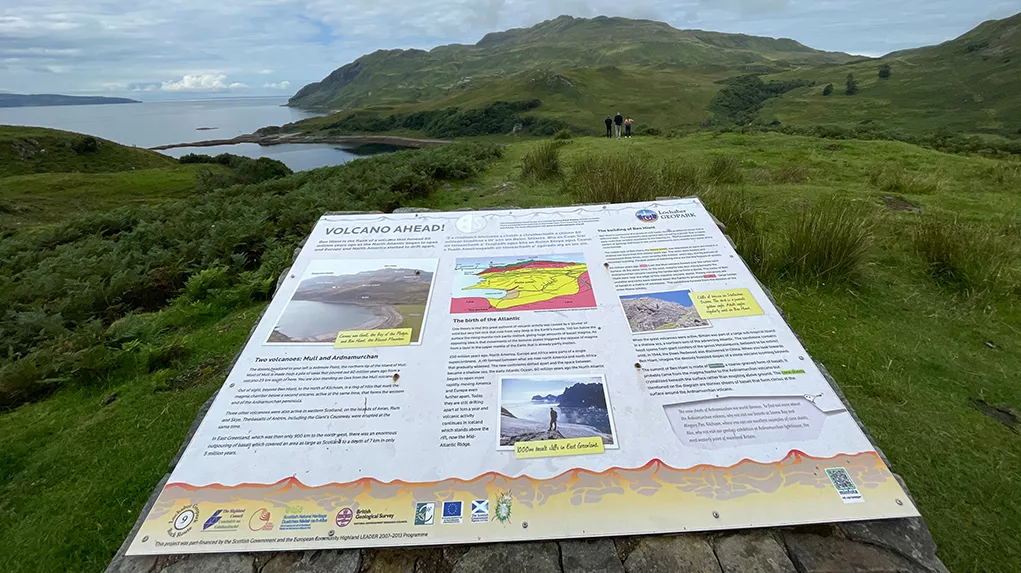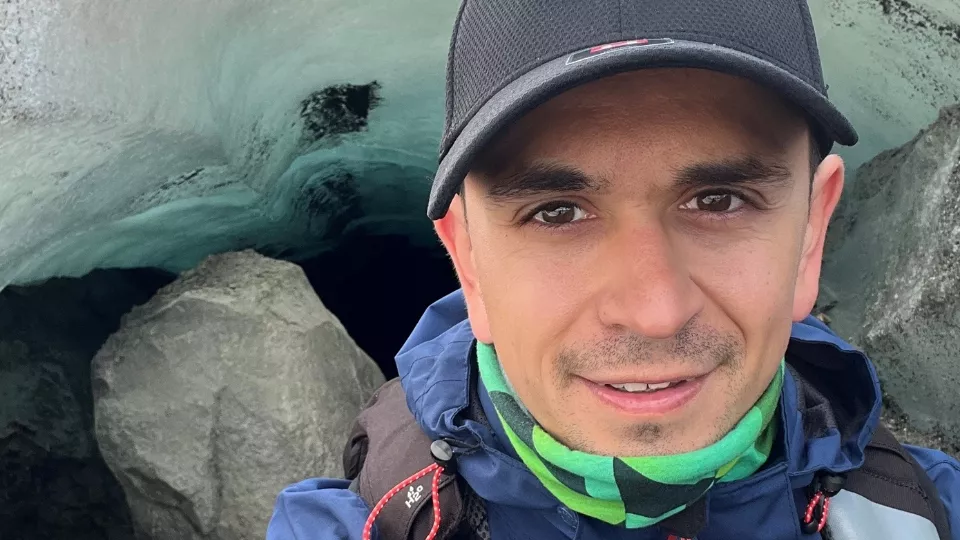
To mark UNESCO’s International Geodiversity Day, recognizing the importance of geoscience in solving major challenges facing humanity today, we spoke with Richard Hallett, currently leading Viridien’s Wellsite Services, about keeping the bigger Earth picture in mind.
Richard, what does geodiversity mean to you?
For me, it involves everything Earth Science, both ancient and modern. Geodiversity has been said to be biodiversity’s silent partner, the non-biological (abiotic) equivalent, but it’s not just related to biodiversity, it’s a whole lot more.
It has been described like this: Imagine the Earth is just a purely spherical planet with no landforms, no geomorphology, no mountains, no rivers and no lakes; just a barren sphere with one rock type — a mono-mineralogical rock. That is everything the Earth is not. The opposite of that is thankfully what we have on Earth — a geodiverse planet.
Why is it important for those of us already working in this field to recognize this day?
I think we need to be reminded of the fact that there is geodiversity outside of our normal working limits and boundaries. A mining geologist may benefit from a better understanding of soil science, hydrogeology, geological natural hazards and other parts of the geodiverse spectrum. A seismic interpreter may need reminding that there is more to subsurface geology than stratified rock layers and structure, there are entire depositional systems and environments to image and reconstruct.
Those of us with a background in understanding other aspects in geodiversity have a responsibility to promote that to other parts of the business to ensure we all work as one team.
What got you into geology?
A trip to Snowdonia at the age of 7 or 8 where I picked up a rock and was told it was about 400 million years old. I was amazed by that huge number, and it captured my interest in Earth history. Those kinds of experiences certainly bring young people into geology, which is why geoscience in the school curriculum and celebration of geodiversity is so important.
It was because of the fantastic geodiversity of Dorset that I later actually moved to the Jurassic Coast in the south of England. After finishing a role in Oman, it was a case of where should we live in the UK? We landed on Dorset, as I had spent a lot of time in the Wessex Basin as a student and it is a great place for maintaining and improving fieldwork skills and geology teaching. As part of the local geologists’ association group, I was taking out groups on geological walks and field trips in the area during the COVID years, between lockdowns.
You’ve seen a lot of rock in your career — how has that influenced your view of geodiversity?
Since graduating in 1988 from Southampton University, I’ve spent the best part of 34 years as a geologist.
I worked as a palynologist in the early part of my career, and then as a stratigrapher, I worked on siliciclastic and carbonate depositional systems. The latter part of my career has involved more data integration, which has given me an insight into other parts of the geodiverse spectrum: fluids, aquifers, geopressures, mud volcanos, etc.

While I’ve focused on sedimentary geology and stratigraphy, I’ve been well aware that we can specialize to such an extent that we lose our skills in other geoscience topics which is a shame as there is so much more to learn and discover. While visiting Lochaber Geopark recently, I found myself dredging up memories of undergraduate classes in igneous petrology. The rocks there show internal workings of a magma chamber of the Tertiary igneous complex of the NW Highlands. I was scratching my head to identify rocks and processes I had not encountered for 30 years.
I feel it is important to promote and conserve these sites around the world; not only the more grandiose UNESCO World Heritage Sites such as the Jurassic Coast, but the regional Geosites and Geoparks are equally important.
What is your advice for those interested in a geoscience career?
Its horses for courses — very dependent on what you want to do. Don’t let others do the thinking for you. Go find out what you are interested in and what you want to do.
Even if geoscience is not your destined career, it is refreshing to celebrate this day. I often take a trip out to our local Geopark on the Isle of Anglesey, not far from the Viridien office in Llandudno. The GeoMôn Global Geopark has spectacular geology and geoheritage. Make some time to go out and visit, appreciate and celebrate our wonderful geodiverity, and learn something or re-learn something along the way.


